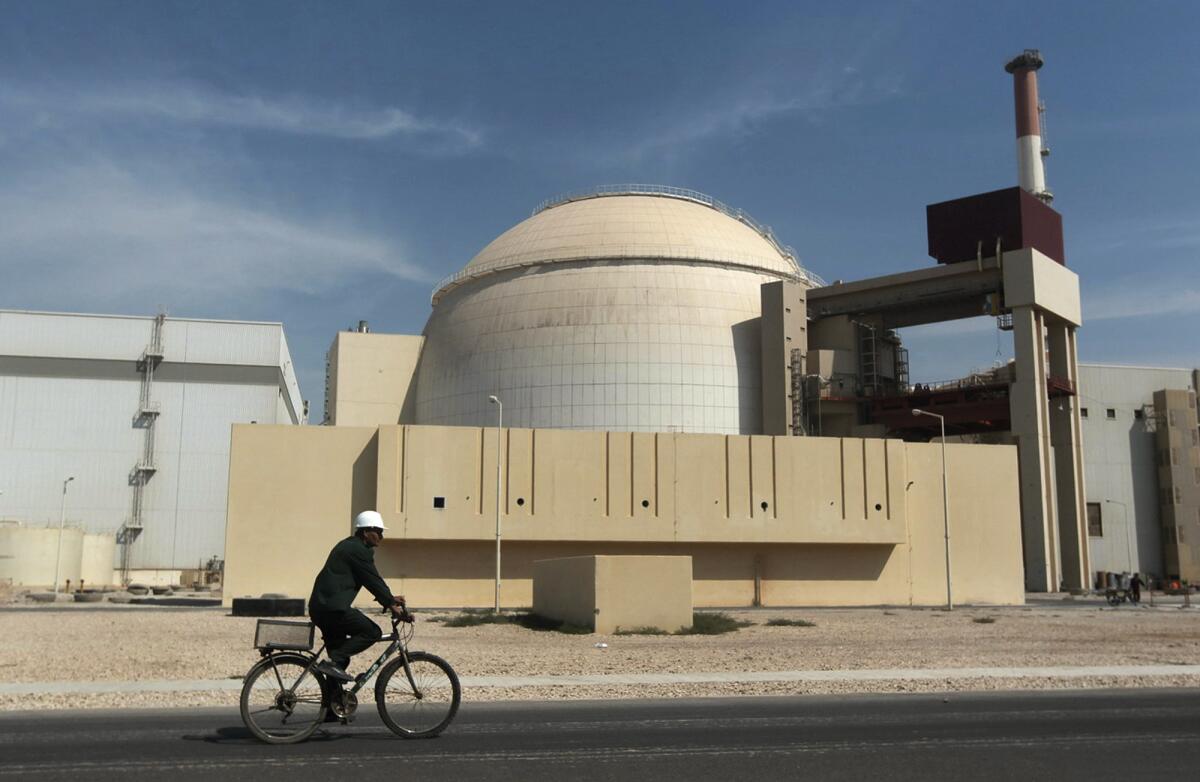Chances of a deal over Iran’s nuclear program ‘quite low,’ U.S. says

GENEVA – Despite rising hopes for a diplomatic solution to Iran’s disputed nuclear program, a senior Obama administration official cautioned Monday that “no one should expect a breakthrough overnight” at international talks set to begin here Tuesday.
Although Iran’s newly installed government has given encouraging signs that it is ready to compromise, the search for a solution will be “very, very difficult,” the official told reporters, as negotiators from six world powers and Iran gathered for two days of talks. “We know that the road will have bumps in it.”
“The chances of an agreement being reached in two days are quite low,” the official added. “This is complicated work.”
The Obama administration is seeking to adjust expectations that recent evidence of a thaw in relations could presage an agreement between Iran and the West over Tehran’s nuclear ambitions after a decade of stalled negotiations.
Last month, President Obama spoke by telephone with Iranian President Hassan Rouhani about their desire to resolve the nuclear impasse, ending more than three decades of official estrangement.
The official, who was not authorized to speak on the record about the talks, acknowledged that the Iranians have not yet provided details of the diplomatic plan they broadly outlined at the United Nations General Assembly in New York in September.
U.S. officials asked during the U.N. meeting that the Iranians provide more information, to give the United States and other world powers a better chance to respond at this week’s meetings.
The six countries – the United States, Russia, China, France, Britain and Germany – are seeking a compromise that will provide assurances that Iran’s nuclear program is not aimed at developing a weapons capability, as many countries fear.
Iran wants a deal to ease economic sanctions, but is seeking to retain as much of its nuclear infrastructure as it can.
ALSO:
Russian police detain migrants who were targets of riot
Four kidnapped Red Cross, Red Crescent workers released in Syria
Egypt’s Mohamed Morsi won’t renounce claim to presidency, family says
Twitter: @richtpau
More to Read
Sign up for Essential California
The most important California stories and recommendations in your inbox every morning.
You may occasionally receive promotional content from the Los Angeles Times.











